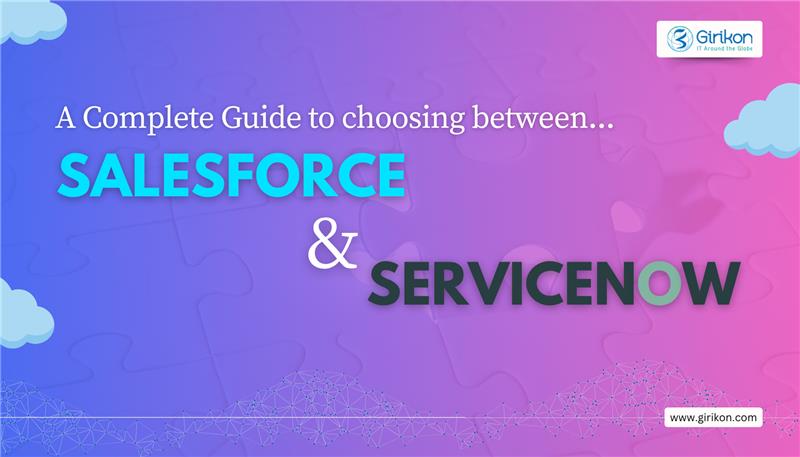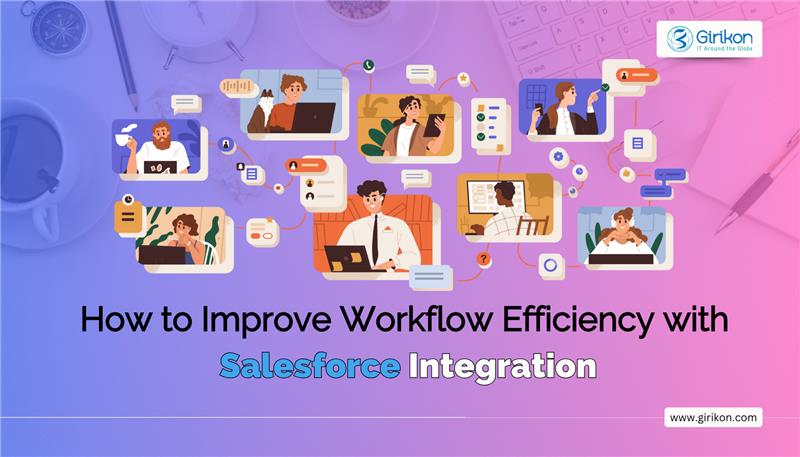Our Blogs
As a robust cloud-based platform, Salesforce enjoys a wide adoption rate by businesses across different industry verticals. This is primarily because of this platform’s wide array of features, functionalities, and components. Irrespective of whether you wish to implement a new system or upgrade an already existing solution, you would require the assistance of a certified Salesforce consulting partner who would help you in every step of your Salesforce journey.

The network of Salesforce consulting partners has been growing over the years and ranges from individual partners to global agencies. They offer expertise across Salesforce products, industries, clouds, and system integration capabilities. However, before shortlisting a reliable partner, make sure you avoid committing the following mistakes:
- Disregarding the pain points and Goals: Before going ahead with any product implementation, organizations should have a clear vision regarding the usage of this solution, the problems it would address, and the goals it would achieve. Without assessing all these aspects, organizations may waste time and money on an underutilized system that cannot be utilized to its full potential.
- Lack of Salesforce Knowledge: To interact with their consulting partner, organizations should be familiar with standard Salesforce terms and technical aspects. To acclimate themselves with basic knowledge of Salesforce, users should watch explanation videos, product demo, etc., on Salesforce.org and Salesforce.com. Disregarding this aspect can prove to be is a mistake that should be avoided.
- Placing Price over Quality: It is easy to get tempted to engage with partners ready to offer services at a low price. However, if you prefer saving some bucks at the cost of quality, you may spend higher costs than planned initially. You may also decide to invest in Salesforce developers as it might seem to be a financially wise choice at the onset. However, you will get a well-developed solution but not evaluated holistically, which results in low adoption rates.
- Undervaluing the Power of Reviews: The portfolios of all the companies look great on their websites. However, this is one side of the coin. It is essential to visit independent review platforms to seek unbiased opinions. For instance, customer reviews on AppExchange enable you to measure customer satisfaction rate much better than survey responses published there.
- Making Hasty Choice: When selecting a Salesforce partner, making a hasty decision can make you repent later. So, make sure you take time to make an informed decision. Seek references from business networks or Salesforce platforms like AppExchange and Trailblazer community to choose from a larger pool of Salesforce consulting companies. Only after you have carefully studied their case studies and portfolios should you select a partner for your project.
- Overlooking their Experience: While it is vital to look for relevant technical knowledge and proper certification in your partner, you should not ignore their industry expertise. Since Salesforce doesn’t provide out-of-the-box solutions, you should look for partners to create customized solutions to meet your unique business needs. You should also look for companies with enough resources and use a similar business model to yours to handle a business of your size.
Final Words:
Investing in Salesforce is a big decision requiring proper planning and implementation to leverage all the benefits. By avoiding the mistakes mentioned above, it is possible to choose the right Salesforce partner. By having the right partner by your side, you will be able to make the most of this platform and take your business to new heights by following the ideas and best practices.

 +1-480-382-1320
+1-480-382-1320 +44-7428758945
+44-7428758945 +61-1300-332-888
+61-1300-332-888 +91 9811400594
+91 9811400594


















